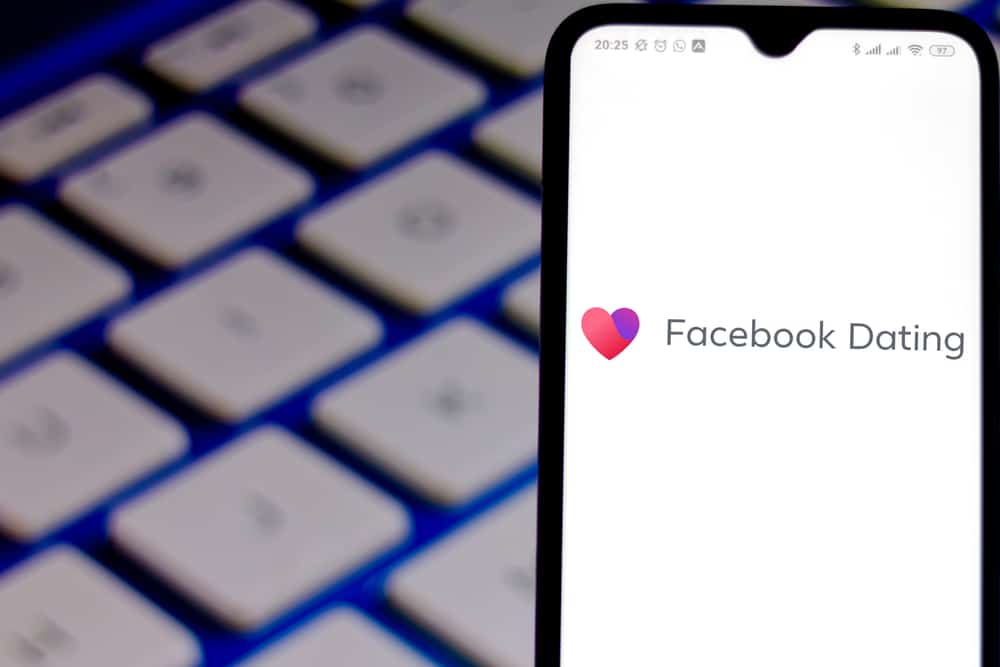What is the Dark Web?
Michelle Wilson - June 24, 2019

The internet is made up of different layers, the dark web, the public web, and the deep web, all of which have different protocols for data protection. The public web is the most accessed layer of the internet, because, as its name suggests, it is the easiest part of the internet to access. It’s the layer most web users are familiar with. Fewer Internet goers, however, are familiar with the dark web—and it’s something you need to know about. So, what is the dark web?
Table of Contents
The public web
To better understand the dark web, it is essential to review some of the other layers of the internet starting with the public web, then the deep web, and finally, the dark web. The public web refers to any information that you can access or get using conventional search engines like Google or Yahoo. There are no restrictions as far as who can view this data, and it’s “publicly” available.
This layer of the internet is where most internet users spend much of their time. Also, this is the part of the internet where most websites are found, from school websites to company websites, and beyond. Another thing that is characteristic of the public web is that every activity made by users is logged on to a domain that shows the user IP address as well as the physical location.
The public web might be the most common layer of the internet, but it doesn’t make a significant portion of the internet as a whole. It only makes a very miniscule part.
The deep web
The deep web, on the other hand, makes up a massive chunk of the internet—almost 90 percent. The name “deep web” might sound scary or even something from a fictional movie, but it is a very moderate place to visit if you know what you are doing. In fact, you might be using the deep web right now, and not realize it!
Most of the sites that are in the deep web will probably turn up when you search something using conventional search engines like Google. It isn’t a super-secret layer of the internet or even one that is necessarily criminal or contains anything malicious.
The deep web includes websites that other people can’t access publicly, meaning they are behind some form of login. For instance, when you log in to use a school’s research library, this vast information bank is not publicly available. Any website that requires a login to access is a part of the deep web—and that’s a lot of sites. Many websites live both in the public web and deep web with portions viewable to everyone, and parts visible only to registered users.
The dark web
Now let’s take a look at the dark web, our primary concern. The dark web is the deepest layer of the internet and is entirely different from the other two layers. It is a hub for diverse criminal activities from modern-day slavery to the drug trade. Law enforcement agencies have identified the dark web as a hotspot for most of the illegal activities in the country as well as internationally.
It is a network of very intricate websites which are hidden—these are not sites that you’ll be able to find via a simple search on a regular browser. Unlike the public web, the dark web allows the user to hide their location as well as their identity. Users can protect their status by using fake usernames or pseudonyms as their screen tags. This option of hiding internet activity is, of course, desirable to the myriad of criminals in the world.
The question, therefore, arises: what is the difference between the dark web and other websites you can find on the public internet? The answer to this question is simpler than you might think. When you search something using the public web using Google or another search engine, the internet tracks all your activities.
This tracking means that somewhere your IP address, domain, and activity is logged for reference—even if you have cookies disabled and are in incognito mode. The Federal government can track your physical location anytime you use the public web. There is no secrecy as servers regularly share your information—or metadata as you will—for reasons of accountability.
However, on the dark web, when a user accesses the layer, no user metadata is recorded or shared by the servers, meaning when a user uses the dark web, he/she does so in an anonymous state. Another question, thus arises: how does the user hide their identity on the dark web? Or rather, how is it possible to use the dark web anonymously?
To answer this question, you must be acquainted with some of the terms used in the IT world. When you access the dark web, there are multiple connections which are encrypted. These intricate encrypted connections block servers from tracking your activity or location using your IP address. The authorities can’t locate your activity on the internet quickly if you use the dark web.
Law enforcement has, in the past, been successful in tracing people over the dark web. However, it is not an easy thing to do and often is impossible. This is the primary reason criminals use the dark web so frequently.
The intricacy of the dark web offers an excellent platform for illegal activities. Terrorists even use it to acquire some of their raw materials such as C-4 explosives for their bombs. Middle Eastern criminals, as well as Eastern European syndicates, have in the past, used the dark web to conduct slavery and prostitution, and likely still do.
How to access the dark web
It’s a misconception that accessing the dark web is difficult. It is actually pretty straightforward. There are many ways to do so, most of which involve a dark web browser. All a person needs to do is obtain one. These web browsers are easily downloadable over the internet and are free. The most commonly used option is called the Tor browser.
This dark web browser functions like any other browser. All you do is download it and install it on your device. After installation, open the browser, type in what you’re looking for as you would with any other search engine, and then search.
However, don’t be mistaken into thinking that finding stuff on the dark web is as easy as finding things on the public web. Many of the websites on the dark web are very repetitive and will, in most cases, give you the irrelevant information.
This difficulty in the dark web is a result of the inorganization found there. Unlike the public web, there isn’t any ranked index organization which makes searches very randomized and untargeted.
However, to overcome this problem, one might use the dark web search engines which give better and optimized results. A search engine like Uncensored Hidden Wiki will guide you into the content you are looking for, but there might be some illegal websites found in the results.
How to search the dark web
Not every activity in the dark web is malicious or with criminal intent. Some people use the dark web for recreational activities such as online chess clubs/communities or social media. For instance, BlackBook is a social media site in the dark web, and many users have compared it to Facebook.
How, then, do you search the dark web? There are many ways and methodologies as far as exploring the dark web. The intricacy and complexity of dark web require that you must have a different browser, such as the before-mentioned Tor browser. There is also special software to ensure that your information is not stolen or your computer hacked by criminals, but that’s an entirely different and complex topic that we won’t be covering today.
There are specialized search engines used by users in the dark web, but these engines are regularly being changed and advanced to optimize security. The world of cybersecurity is tricky and requires constant monitoring and upgrading because technology is continuously being challenged.
However, one thing that is constant about all dark web engines is that they all resemble the web searches of the late 20th century. The results of a dark web search also bring repetitive results, most of which are very irrelevant to a user’s needs. One of the best search engines used by users in the dark web is called Grams.
There is also another way of searching the dark web using link lists. The Hidden Wiki is the most common link list, but like the search engines, it is also unfulfilling. Timed out connections, as well as errors accessing the sites, are common. There is also a severe repetition of indices, meaning that most of the websites might turn up may not be relevant to your needs.
Once you find them, though, dark web sites are similar to public web sites beyond a few significant differences. One of the vital dissimilarities between the dark web and public web domains/sites is that they end with “.onion” instead of the conventional “.com” or “.co.”
The websites end with the suffix owing to the deep security algorithms protecting user data and information on the dark web. Therefore, a standard browser can’t access such a domain. This is why a unique browser, such as Tor, is necessary to access dark web sites.
Dark web sites are also made of both numerical and alphabetical characters making their memorization tough. The websites have different characters scrambled together to create a URL. In the dark web, it is common to find a URL that looks like this “gd5585w8w5w852wdwq6.onion”.
Many of dark web sites are also short-lived because criminals use them. To avoid facing the aftermath of their activities, scammers will often abandon their domains and create new ones to conduct new scams. However, the police and other law enforcement agencies are getting better in tracing these scammers over the dark web.
For instance, in 2017, Alpha Bay was successfully shut down by law enforcement agencies. This dark web site was the largest platform for the supply of contraband as well as other illegal activities on the internet at the time. However, the owners of the site were never found, and it is highly likely that they shifted to a new domain.
How to scan for your info on the dark web
A dark web scan involves monitoring the dark web to ascertain whether your information appears for sale there. This data might include things like stolen passwords, credit card numbers, personal information, and more.
A dark web scan can help you avoid cases of identity theft as well as being associated with criminal activities over the dark web. It can also help in preventing credit card fraud and other debts you may be held accountable for.
There are many ways to scan for your info on the dark web. CheckPeople offers unlimited scans for a low monthly fee. You can search for your data as often as you like, and even vet those who may be around you, such as prospective love interests, new employees, or babysitters. Click here to protect yourself with a dark web scan now.
There are also free services that you can use to scan the dark web. For instance, Troy Hunt invented an online platform called “Have I Been Pwned” where you can freely check to see whether your personal information is available on the dark web.
The website/scanning engine checks to see whether your passwords of email addresses appear in any of the upwards of 322 data dumps found in dark web sites. The service also can be set to notify you any time your email address appears in any of the information dumps in real time.
Unlike the usual dark web scanning software that promise to scan your social security numbers over the dark web, Hunt’s service only uses your email. The service a solid first step in checking whether your credentials have been leaked on the dark web.
Even using this service, though, it is always good to be careful. You should use unique passwords on every online platform you use. The use of unique passwords and credentials is essential, especially if criminals get a hold of your credentials in one platform. If the criminals hack you and you don’t have unique passwords, they will probably try a bunch of combinations to guess other passwords.
Many people claim that using different passwords might be dangerous, especially when you can’t remember your combination to a particular website. However, there are many secure password managers available, both free and paid. Some programs an even save you time by offering browser extensions that auto-enter your saved logins, passwords, and personal information, such as your address or phone number. A password manager will help you in storing and remembering all your passwords without the risk of losing the information to criminals.
By now, most people will think that a dark web scan is useful because after all, it checks whether your info is being used for criminal activity, right? But this is not always the case. Even if your data doesn’t come back in any of these scans, you should always assume you are at risk, especially by hackers.
The truth is, in our current society, cybersecurity is at its worst.
What to do when browsing the dark web and maintain your cybersecurity
It is no lie that the dark web is a hub for criminals who want to exploit your personal information. You need to be careful while using the dark web. While browsing, take steps to protect your data as well as your identity.
You also don’t want to poke around every website that you come across. The dark web, unlike the deep web, doesn’t have a lot of useful info because it is mostly used by criminal syndicates to conduct their activities without too much interference.
Because dark web browsers keep users, as well as the publishers, apart from by maintaining their anonymity, it is challenging to control some of the content in this internet layer. There is a myriad of activities going on, and therefore, it is impossible to keep track of some of the financial operations.
The dark web is an excellent place to maintain one’s anonymity and also an excellent place to retrieve valuable information. It can be a great place to create interaction groups based on your hobbies, such as playing chess, while protecting your privacy. In the same measure, the dark web is also a dangerous place for one to be roaming around carelessly because criminal syndicates use it. Browse with care.












